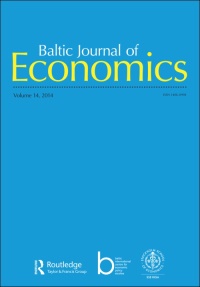The Lack of Wage Setting Power of Estonian Trade Unions?
The Lack of Wage Setting Power of Estonian Trade Unions?
Author(s): Raul Eamets, Epp KalasteSubject(s): National Economy, Labor relations, Human Resources in Economy, Labour and Social Security Law
Published by: BICEPS/SSE Riga
Keywords: trade union; negotiation power; labour market flexibility;
Summary/Abstract: The current article presents the concept of labour market flexibility and its role in transition economies. The role of unions in labour market flexibility is described in order to assess the role of unions in Estonia. We assume that the wage differential reflects the power of trade unions to shape the working conditions in the workplace. Therefore the most common approach is followed for estimating the wage differential i.e. analysing personal, occupation and industry characteristics. It appears that Estonian trade unions do not have enough bargaining power to result in a positive wage gap for union members. This result was expected because trade union density and coverage rates are very low in Estonia.
Journal: Baltic Journal of Economics
- Issue Year: 5/2005
- Issue No: 1
- Page Range: 44-60
- Page Count: 17
- Language: English

